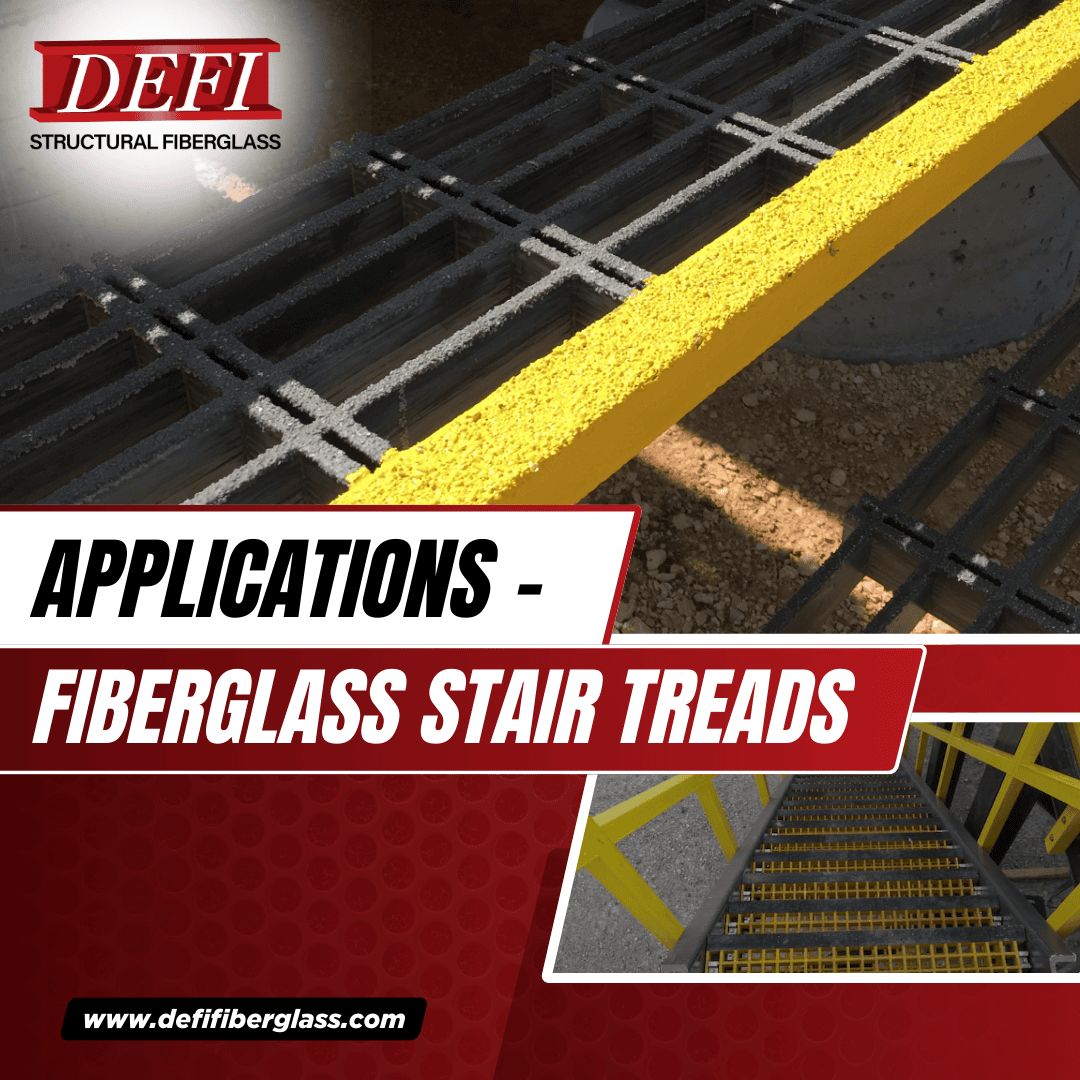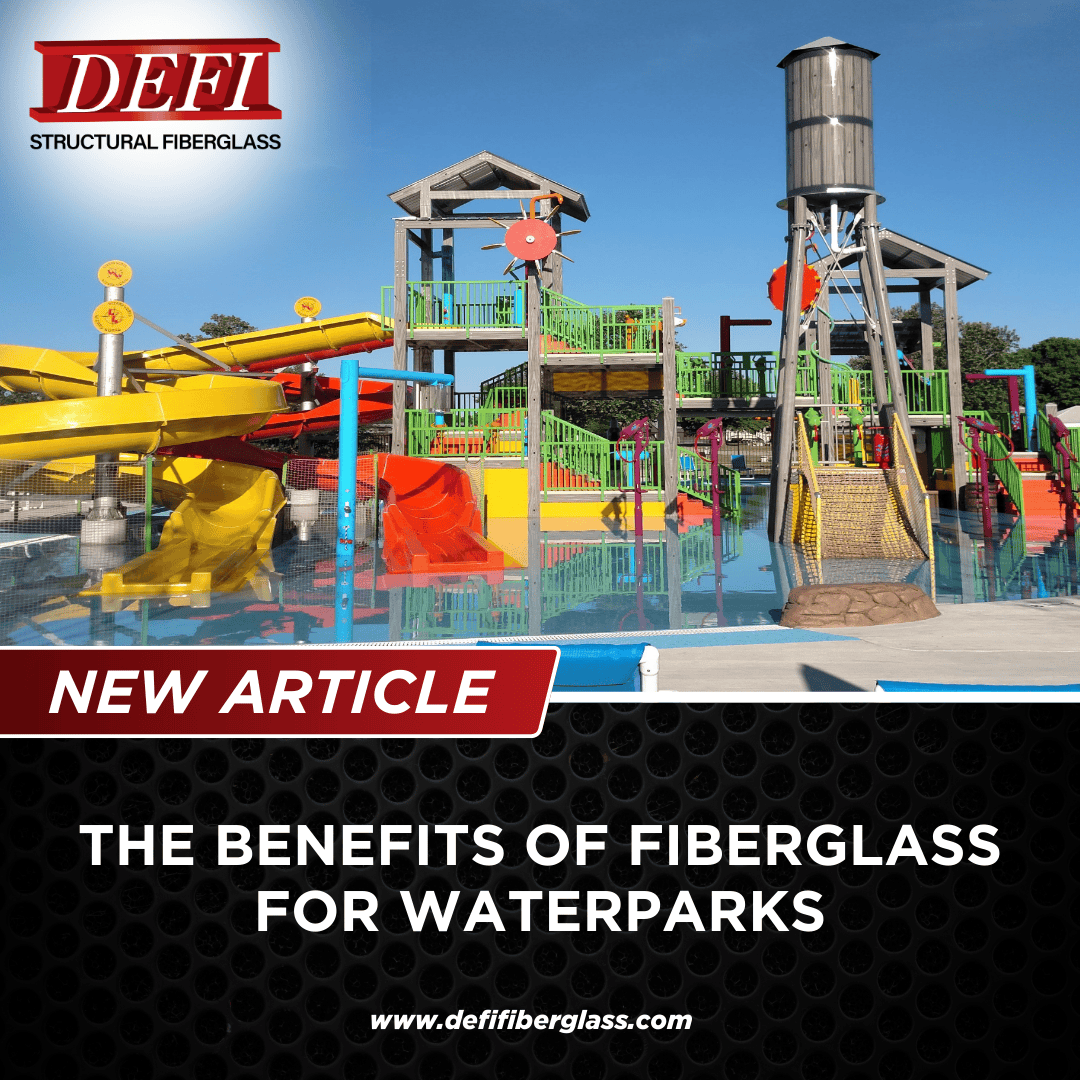 Structures are only as good as the materials that make them up. This goes for durability, aesthetics, and functionality.
Structures are only as good as the materials that make them up. This goes for durability, aesthetics, and functionality.
All these traits are important to business stairs, too, which is what makes stair tread covers so important.
Stair tread covers are a simple way to add strength and traction to any industrial or commercial operation. There are so many options to choose from, in terms of design and materials, that it can be difficult to know where to start. The good news is that, once you understand the potential pros and cons of each type, you can make a more informed decision.
Fiberglass stair tread covers offer many advantages. The article below covers these and includes some basic information about fiberglass makeup and its uses. Keep reading to find out if this is the right option for your business or building project.
What Are Fiberglass Stair Tread Covers?
Fiberglass is a type of plastic that is reinforced with glass fiber. While glass fibers have been around for centuries, mass production of such strands did not take off until the 1930s.
Today, fiberglass is used in a range of applications. These include automotive, boating, aircraft, roofing, as well as interior and exterior building uses.
To make fiberglass, you must heat glass until it reaches a molten state. It can then be forced through small holes to create tiny glass filaments.
Then, the filaments are woven together to form larger swatches of material. Depending on the application, you might also add different resins to the fiberglass. This helps hone its strength or mold it into distinct shapes and designs.
Seven Reasons to Use Fiberglass for Stair Tread Covers
There are many advantages to using fiberglass stair tread covers. Here are a few of the main ones to consider.
1. Lightweight and Ease of Installation
Fiberglass is extremely lightweight. It has a lower density than even aluminum, which is much less durable. This can be very important in building applications, as lighter materials are easier to transport and work with.
Due in part to its lighter weight, fiberglass is very easy to work with. Under controlled production conditions, you can mold the material, shaping it into almost any design imaginable. This translates to easier installation and means there is no need for welding or special tools for installation.
2. Durability
Fiberglass is a very strong material. It has a tensile strength that surpasses construction-grade aluminum and is on par with steel (which is much bulkier). In fact, the strength-to-weight ratio for fiberglass is much higher almost any metal.
You can expect fiberglass stair tread covers to hold up for a long time, even under heavy use. It is also worth noting that fiberglass will not burn. It is resistant to flames or other types of direct heat.
While strong, fiberglass stair tread covers also have built-in flexibility. This contributes to a slight give that can help them hold up under continuous use much better than more rigid products.
3. Corrosion Resistance
Fiberglass stair tread covers are completely resistant to corrosion. Since it is a plastic polymer, it will not rust.
It will stand up well against any sources of moisture. You will not see signs of mold or algae buildup that can plague wood or concrete.
Fiberglass is also resistant to corrosive chemicals. If your stairs are in areas with acids, salts, oxidizing, agents, or corrosive gases, you can expect the fiberglass tread covers to withstand spills.
4. Safety
Fiberglass stair tread covers provide a lot of traction, which can greatly increase safety in any workspace. Some custom tread cover manufacturers can create different levels of grit using epoxy or other additives during production. This allows you to select a specific level of traction, depending on the environment and uses of the stairs.
Fiberglass is also non-conductive. It has a relatively low thermal conductivity, especially compared to most metals.
This means it will not allow heat from electrical current to easily move through it. That can be a huge advantage in environments with a lot of wiring or high-powered electrical machinery.
5. Low Maintenance
Fiberglass stair treads are very easy to clean and maintain. They require no refinishing or other upkeep, so you can expect them to hold up and look great for a long time. Most fiberglass stair tread covers only require occasional cleaning with mild detergent and water.
6. Affordability
Fiberglass is an economical option.
Efficient production processes allow manufacturers to offer custom tread covers without excessive costs. Especially when you consider the other advantages that fiberglass offers, its price tag is extremely competitive compared to other tread materials.
7. Sustainability
Finally, fiberglass production has minimal impact on the environment. Its main component, glass, is made from sand, an abundant, natural resource. Also, fiberglass’s long life cycle makes it more sustainable, as it contributes to less waste going to landfills.
The production of fiberglass is very energy efficient and requires very little water or other resources. Also, the product’s low weight keeps transportation costs low, which means fewer fossil fuels are burned getting fiberglass products from A to B.
Learn More About Fiberglass Stair Tread Options
We hope you found this information on structural fiberglass use helpful. Now that you understand the main benefits of using fiberglass for stair tread covers, you can decide if it is the right option for your project. They can provide greater durability, corrosion resistance, and a more pristine appearance than almost any other material available today.
DEFI is a pioneer in applying the benefits of fiber-reinforced plastics to various industrial and commercial applications. We offer custom fabrication and quick shipping.
Reach out to us today to learn more.



